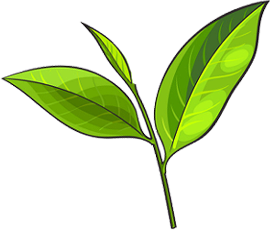Scientific research has been conducted to compare the tea quality between organic and conventional farming systems in China has shown that the water extracts of organic tea is significantly higher concentrations of key catechins linked to tea quality including epigallocatechin gallate (EGCG), epigallocatechin (EGC), epicatechin gallate (ECG) and epicatechin (EC) compared to the conventional tea. Concentrations of proline and γ-aminobutyric acid are also statistically higher in organic tea. However, most of free amino acids, particularly theanine, are lower in organic tea. Environmentally, the organic tea gardens have greater stress levels than conventional tea gardens since the accumulation of catechins and proline in plants is associated with environmental stress. The lower concentrations of amino acids in organic tea indicates potential nitrogen deficiency and the need for managing soil nitrogen in order to increase overall amino acid levels while still managing for high levels of polyphenols. The higher concentrations of antioxidant compounds in organic tea suggest the potentially greater health benefits as these compounds are linked to disease mitigation and health promotion in human consumers.
Studies conducted to compare the soil and tea quality between organic and conventional farming systems showed that organically managed tea agro-ecosystems had statistically significant higher levels of soil pH, organic carbon (C), and total nitrogen (N) contents. Organically managed tea systems are further


 Quality of Organic Tea
Quality of Organic Tea